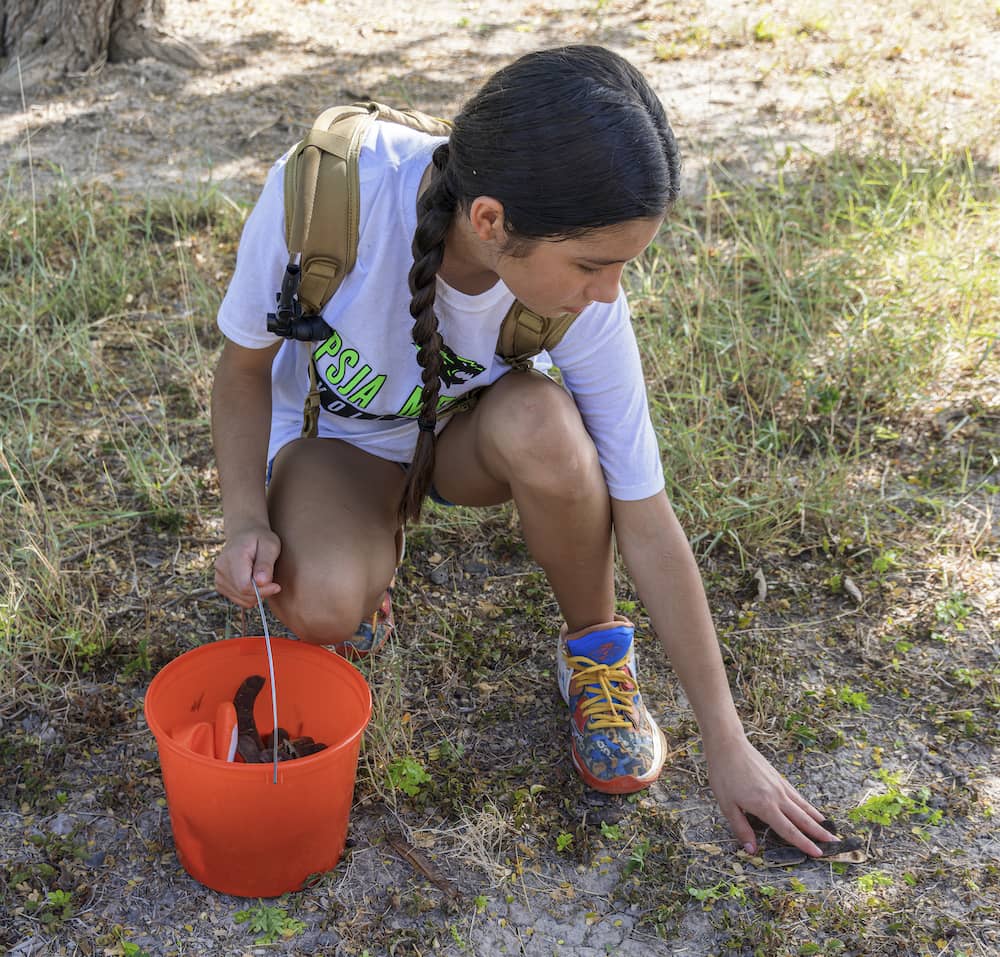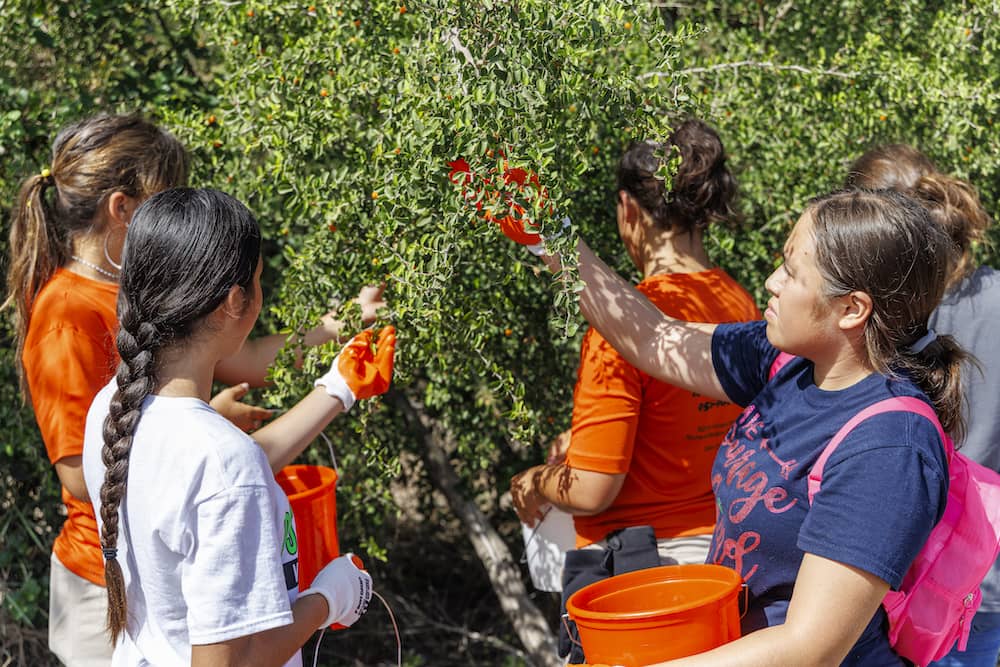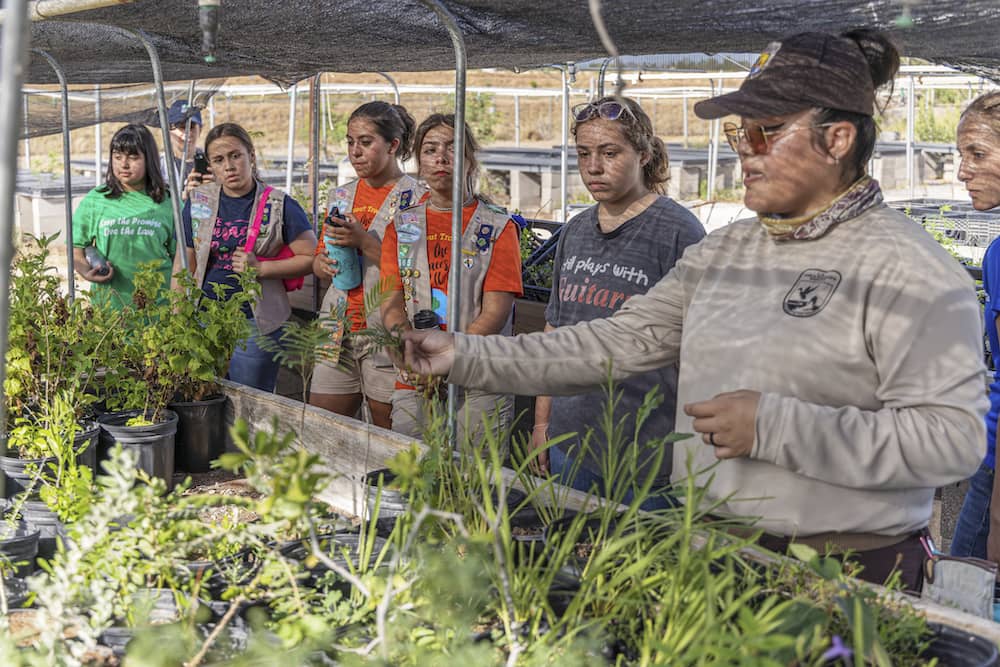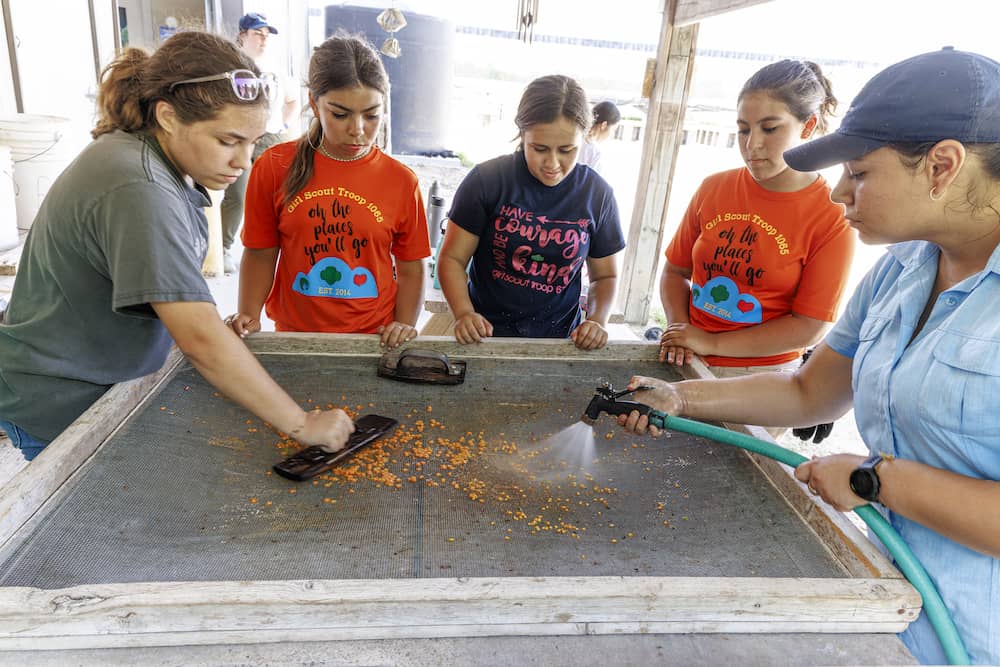The work of today is the history of tomorrow, and we are its makers. — Girl Scout Handbook, 1913
“A lot of making the world a better place is not only your action but taking action for others. I learned about how I can make the world a better place to combat climate change and share this with my troop, friends and family, and that’s how you spread the word.” — Lola, a Girl Scout thornforest restoration participant
I love the first quote from Juliette Gordon Low, the founder of Girl Scouts, because it speaks to the courage of believing that, through our good work, we can make the world a better place for our communities and those who will follow us. The second quote from one of today’s young leaders reminds me why I’m in the fight, because it makes Low’s words a reality now in the thornforests of the Rio Grande Valley.

Photo Credit: Paul M. Denman / American Forests
I saw this courage put into action by the Girl Scouts of Greater South Texas, who collected and sorted tree seeds on a hot July Saturday to help restore the local thornforest ecosystem of the Rio Grande Valley in deep south Texas. Their work is part of the Girl Scout Tree Promise to “plant, protect and honor” 5 million trees to tackle our climate and biodiversity crises and advance social equity. I was proud to have been part of the team at Girl Scouts of the USA who helped develop the Tree Promise, and am now thrilled to be supporting the Girl Scouts partnership in my role at American Forests, where we serve as the subject matter expert for the program.
On this day, the girls pitched in to help tackle one of the greatest problems facing our forests — a critical lack of seeds and seedlings needed to adequately restore forests lost to wildfire, disease and even development. The internationally important thornforest ecosystem in the valley provides habitat for the ocelot and other wildlife, gives people shade from the heat, helps prevent flooding and erosion, and fights climate change by storing carbon. More than 90% of the Valley’s original thornforests have been lost, so the U.S. Fish and Wildlife Service and American Forests are working together to help restore thornforests in the Valley through seed collection, growing native species in local nurseries and climate-adapted planting, but this difficult work requires as many hands as possible.

Photo Credit: Paul M. Denman / American Forests
Family and neighbors are important in the Valley. So it meant a lot for the girls to hear from Gisel Garza and Lili Martinez, two local women who shared their experiences as ecologists and helped the girls imagine that they, too, could be scientists and forestry professionals one day.

Photo Credit: Paul M. Denman / American Forests
Garza and Martinez explained how scientists gather seeds from native plants that are genetically diverse and can be grown to rebuild the thornforests in our climate-changing world. Girl Scout volunteers helped by collecting and processing seeds from the Texas ebony and granjeno, important trees found in almost all thornforests.
Collecting and processing seeds is hard work. Girl Scouts spent hours harvesting seeds in the hot sun, picking granjeno fruits from the thorny branches and harvesting Texas ebony seed pods. After collecting buckets of seeds, the girls rinsed and scrubbed the granjeno seeds to remove the pulp and pulled seeds from the Texas ebony pods. The seeds will be stored for growing seedlings that will be used to restore thornforest ecosystems in the Valley.

Photo Credit: Paul M. Denman / American Forests
We closed by taking the Girl Scout Tree Promise together, Girl Scouts and adults alike. I left with my cup overflowing with gratitude from spending time with young leaders who are making tomorrow’s history today by restoring trees for their community.
Creating this special experience for the girls was a labor of love. Thanks go to all our friends with the U.S. Fish and Wildlife Service, especially Mitch Sternberg, Joe Barnett, Eric Verderber and Lili Martinez, for all their hard work and hospitality, including decorating the Marinoff Nursery with educational posters to welcome the girls. And special thanks go to the Girl Scouts of Greater South Texas, who provided this experience so their girls would have a better understanding of this special ecosystem in their own backyards. This event wouldn’t have happened without my wonderful colleagues Jon Dale, Gisel Garza, Sara Kangas and so many at American Forests who work each day to create a better future for others and build future leaders, especially girls.